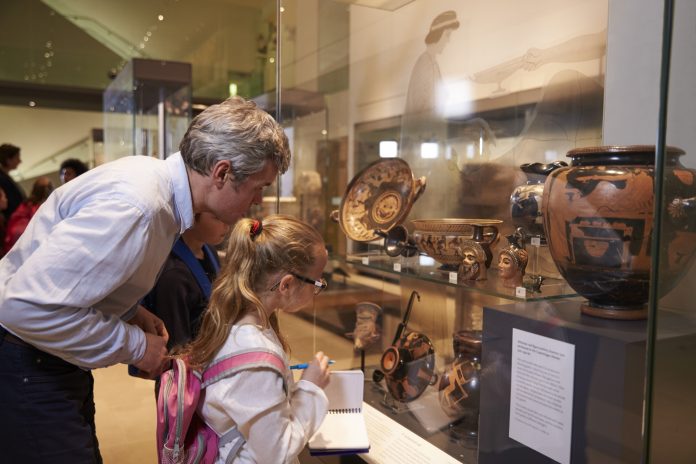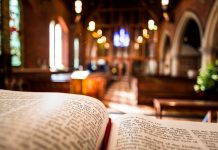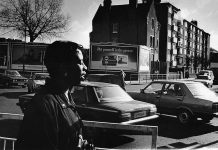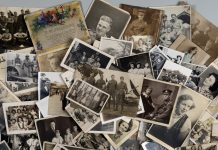Dr Leanna Brinkley, Study Group’s Head of Quality Assurance and Enhancement at Cardiff University International Study Centre, shares her stance on respectful dialogue in the classroom when studying history
Historians of the past have tended to focus on the establishment of historical fact”. However, history cannot be studied in a vacuum, and researchers will inevitably be influenced by the social, cultural and institutional landscapes in which they operate.
While it is imperative that we ensure our claims are accurate and supported by sound evidence, it is unproductive – some may say futile – to try and establish a definitive historical truth. Part of constructing a rigorous historical narrative is acknowledging how our experiences and the belief systems we subscribe to shape our interpretations of studying history.
Decolonising the curriculum
The notion of decolonising the curriculum for history is often framed as a mere trend or an attempt to rewrite history; this is simply untrue. What it means is challenging the dominant Eurocentric view of historical events that created an established narrative for empire-building through colonialism. The account has typically celebrated the achievements of a cultural pervasion that undoubtedly had great benefit and impact for empirical leaders, but without exploration of the events from alternative viewpoints.
The concept of interrogating historical theories has always been fundamental to studying history. It is a natural evolution to review and re-review chapters of history as our knowledge expands and our intercultural connections develop. Decolonisation of curricula is no different.
Historical analysis is a dialogue that re-evaluates positions based on new evidence. To understand this, one need look only to the annals of English kings and queens – or parliamentarians – through the ages. The discourse on whether their leaderships were successful, disastrous, just or biased is ongoing. New evidence and research contribute to such debates, but as a global society, we are changing, which also impacts the lens through which we look at the past.
As we become more connected around the world and more engaged with other viewpoints, our ability, capacity and appetite to analyse historical events through the lens of multiple social, cultural, and political backgrounds have developed.
Studying history has evolved to be more diverse
We have seen this happen across the globe. For example, when scrutinised with newfound evidence or perceived through alternative angles, early narratives of the ‘Wild West’, which centred around the good and the bad of cowboys and Indians, and the promise of fortune for gold seekers, are easily challenged.
A broader range of interpretations of that period of American history and, similarly, in Australia, has supported a conscious move away from the romantic and binary view of manifest destiny as propagated by 1950s Hollywood Western movies.
Efforts to move towards a more nuanced view that attempts to depict Native American life and culture more accurately can be seen in films such as 1990’s Oscar- winning Dances with Wolves and 1998’s Smoke Signals, which remain among the best-received films to emerge from Native American cinema to date. Although both films have received fair criticism, they have been considered key milestones in the shift towards more balanced depictions of life in early America.
Ensuring respectful dialogue when studying history
To ensure broad-spectrum inclusion, our role as educators is to create an environment where healthy, inquisitive discussions can occur with respect and without discrimination or inflammatory provocation.
But we must also embed skills acquisition into our teaching. Indeed, the skills associated with participating in meaningful and respectful debate need to be taught, not assumed. This is particularly true for students who missed out on much education and social development during the pandemic years and came of age surrounded by the echo chambers provided by social media. This often requires a gentle touch to ensure those skills are built up gradually. We need to be conscious of the fact that these skills are not a given and provide our students with the necessary tools to develop as debaters.
University and school debating societies can provide a further platform for opposing arguments outside the classroom. Rules demand the use of evidence to support statements, and the format is designed to give equal support to the making of all cases.
While these events are not without risk of bias arising, for example, from the demographics in the society or those to which the society is available, and passions can surface, hosts – much like tutors – can manage the discussion to deliver civility and successful discourse.
Suppose we can build up individuals that can voice diverse opinions with respect, kindness and compassion. In that case, we may go some way to negating the negative impacts of the binary and divisive political discourse that has dominated in recent years.
In debates, classrooms, lecture halls and history books, a curriculum or agenda from a singular or polarising stance will present barriers to inclusion. Students who feel their own cultures or histories are marginalised risk feeling excluded and disengaging with the discipline. Creating space and respect for multifarious views, perceptions, and voices when studying history can enrich understanding and learning experiences for all in the classroom, regardless of their backgrounds.
Making history a more inclusive subject
It is paramount that we foster respectful dialogue in the classroom to enable discussion of sensitive topics. The potential ramifications of supporting generations to tackle the big questions with mutual respect, interest and empathy are substantial.
One of the qualities that students hold in common is the goal to learn. As scholars, we should value respectful, inclusive and challenging discussions as essential to our craft. Respectful discourse and a broad debate will, ultimately, result in a more insightful, honest study of history. In turn, this presents history as a subject with the opportunity to widen and sustain its relevance to society and play a foundational role in fostering diverse and inclusive communities.
Today’s global challenges require rounded resolutions that span geo-political boundaries. Studying history and the capacity to collaborate, interrogate, incorporate, and understand will help foster tomorrow’s leaders with the skills we need today.
Contributor Details
Editor's Recommended Articles
-
Must Read >> Why is it important to study history?















